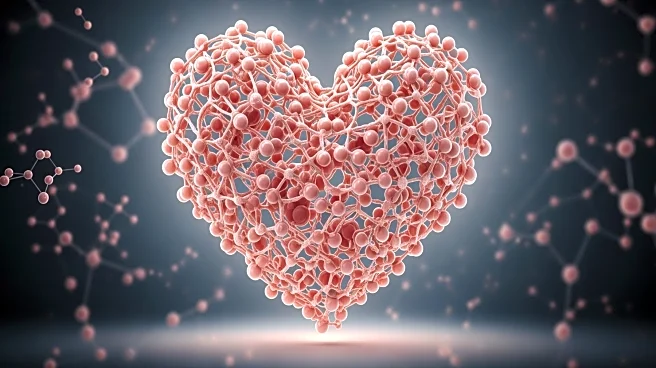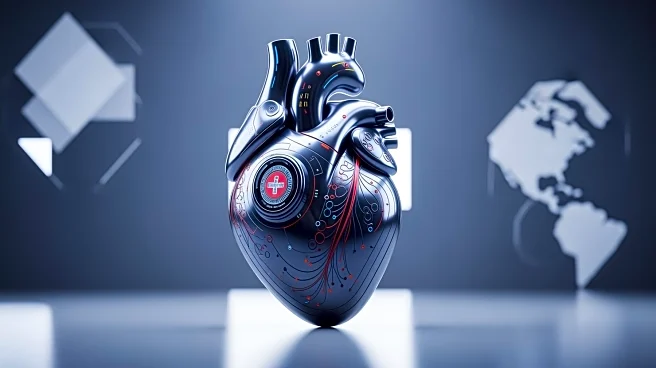What's Happening?
A study has linked the overactivity of the HMGN1 gene to heart defects in Down syndrome. Researchers used human stem cells and mouse models to demonstrate that increased HMGN1 disrupts DNA packaging, affecting heart development. Reducing HMGN1 levels
in mice eliminated heart defects, indicating that three copies of this gene are necessary for the defects seen in Down syndrome. The study suggests that HMGN1, along with other genes like DYRK1, may contribute to these cardiac issues.
Why It's Important?
Understanding the genetic basis of heart defects in Down syndrome could lead to new treatments that prevent these conditions. The research provides a potential target for genetic therapies, which could improve the quality of life for individuals with Down syndrome by addressing one of its most common and serious complications. This study also exemplifies the power of combining genomics with computational modeling to uncover disease mechanisms.













